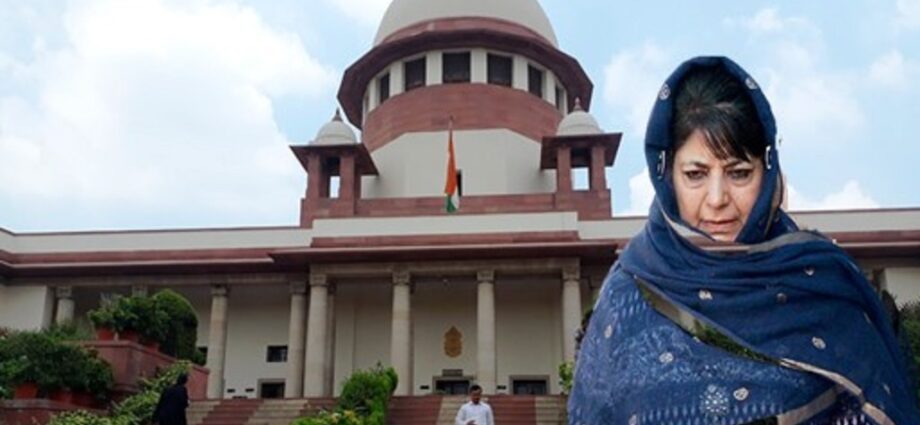Delhi 16 August(KNB): In the ongoing hearings at the Supreme Court regarding the abrogation of Article 370, the former Chief Minister of Jammu and Kashmir, Mehbooba Mufti, made a noteworthy reference to Lord Ram, emphasizing that the essence of ‘vachan’ (promise) is being tested in the Apex Court. Mufti’s comments reflect the significance of upholding commitments and the principles of the Indian Constitution.
Mufti, who is also the leader of the PDP (People’s Democratic Party), addressed the Court on Wednesday, stressing that the issue at hand pertains to all citizens of India. She emphasized the need to govern the country based on the Constitution rather than majoritarianism, affirming that the nation’s foundations lie in upholding democratic values.
Referring to the abrogation of Article 370, Mufti highlighted its connection to the promises made to the people of Kashmir in 1947. She expressed her confidence in the Supreme Court as an institution and its role in preserving the values enshrined in the Constitution.
Mufti drew inspiration from Hindu mythology, particularly the principle of ‘Raghukul reet sada chali aayi, pran jaye par vachan na jaye,’ which the Raghu clan, to which Lord Ram belonged, adhered to. This principle underscores the importance of keeping one’s word even in the face of adversity.
Mufti’s comments extended to the polarization within society, distinguishing between those who invoke the name of Lord Ram to promote violence and those who genuinely uphold his teachings. She contended that the concept of ‘vachan’ is being tested by the Court, as it determines whether the nation will be guided by the Constitution or driven by divisive agendas.
Expressing her concerns about the aftermath of Article 370’s abrogation, Mufti criticized the central government for its assertions of improved conditions in Jammu and Kashmir. She alleged that the actions taken by the government, in the name of ending militancy, have adversely affected the region.
Mufti’s presence at the Court coincided with arguments presented by senior advocate Rajeev Dhavan on behalf of the Jammu and Kashmir People’s Conference. Her statements align with the broader public discourse surrounding the constitutional validity and consequences of the Article 370 abrogation.
It is clear that the Supreme Court’s deliberations on Article 370 are more than a legal matter; they encompass the fundamental values that shape the country’s identity. As the proceedings continue, the Court’s decision will play a pivotal role in determining the path India chooses to follow – one driven by constitutional principles or divisive ideologies.(KNB)

